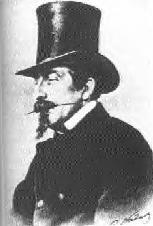Okay, I’m convinced. Let’s resurrect him.
Tag Archives | Lapsus Linguae
Happy Forth
Sentimental Eduction
The headline of today’s Opelika-Auburn News boasts that Auburn has made the list as “one of the best small cities for eduction [sic].”
Faisons à Nouveau la Distorsion Temporelle
Timothy Messer-Kruse’s The Yankee International: Marxism and the American Reform Tradition, 1848-1876 is an interesting book, documenting the history of the freewheeling American branch of the International Workingmen’s Association before the Marxists kicked the feminist, anarchists, and antiracists out. (Stephen Pearl Andrews, Victoria Woodhull, Ezra Heywood, William Greene, J. K. Ingalls, and by some reports Lysander Spooner were members.)
But this passage about the Paris Commune gave me pause:
“Sadly, the Commune was short-lived, and soon a vicious counterrevolution on the part of Napoleon III, aided by Prussian troops, had turned the tide.” (p. 100)
Um. The Commune lasted from March through May of 1871. Napoléon III had been taken prisoner (not a straightforward sense of “aided”) by Prussian troops at the Battle of Sedan in September of the previous year. Upon his release in March 1871 (consequent to the resolution of peace negotiations ending the Franco-Prussian War), he went into exile in England and spent the rest of his life there. Thus he had no role in the French government from September 1870 on. There was indeed a “vicious counterrevolution” in response to the Commune, and I’m sure that, had Napoléon III been in power, he would have happily led it. But he wasn’t and didn’t.
So now I worry, if the book is wrong about so basic a fact of history, what else is it wrong about?
Them Pore Old Bosses Need All the Help They Can Get Remembering the Lyrics
Okay, I keep a vast menagerie of peeves as pets. Here’s one.
The name of the Roy Orbison song is not “Sweet Dreams, Baby.” It’s “Sweet Dream Baby.” (Or, strictly speaking, just “Dream Baby.”) He’s not wishing her sweet dreams; it’s not a lullaby. He’s saying that she’s his “sweet dream baby,” the subject of his sweet dreams. (Dreams whose fulfillment is not necessarily to be expected.) Listen, you can hear that he’s singing “sweet dream baby” and not “sweet dreams, baby,” even if the person who uploaded the song to YouTube labeled it “Sweet Dreams, Baby”:
Among the factors that have contributed to the confusion is a commercial from a few years back; I forget what the commercial was for, but it showed a kid eating a cookie (though it wasn’t an ad for cookies) while playing a version with “dreams” in the lyrics. Another is this iconic performance, where it can easily sound as though Orbison is singing “dreams”:
But if you listen carefully – and watch both Orbison’s lips and those of Bruce Springsteen, who’s accompanying him here – it becomes clear that Orbison is still singing “dream” and it’s Springsteen who’s adding the S. That’s right: while backing up Orbison at an Orbison tribute, the Boss is singing the wrong goddamn lyrics.
An Observation Thingy
One advantage of learning traditionally correct grammar, vocabulary, usage, etc., even for those who do not regard them as normative, is that without such knowledge one will be unable to pick up on subtle distinctions in writers who do use them.


